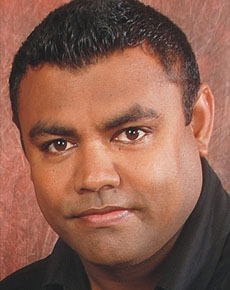The ruling Maldivian Democratic Party (MDP) has held an emergency meeting and called for a nationwide protest against the country’s judiciary, starting at 3:30pm.
The party contends that the courts have been prioritising cases filed against MDP members and delaying cases involving opposition figures. The protest coincides with the Supreme Court’s scheduled delivery of a verdict in a case filed against MDP MP Mohamed Musthafa, requesting his candidacy as an MP be invalidated.
The case against him was filed in July 2009 by then leader of the Islamic Democratic Party (IDP) Umar Naseer, shortly after Musthafa won the election for Thimarafushi constituency against former President Maumoon Abdul Gayoom’s son, Gassan Maumoon. Umar Naseer contended that Musthafa had a decreed debt dating back to 1997 that was not paid in accordance with a court ruling.
Today’s protest was proposed to the party’s National Council by MDP MP Mariya Ahmed, the party’s former chairperson.
MP and spokesperson for the party’s Parliamentary Group, Mohamed Shifaz, told Minivan News that the protest would start at the MDP’s Head Office and assemble near properties belonging to the judicial system.
Shifaz said there had been cases filed against opposition figures “held up in the courts for years.”
”Hearings in the corruption case against People’s Alliance MP and Deputy Speaker of parliament Ahmed Nazim were closed to journalists and the public, and the court has delaying the trial,” he claimed. ”But if this was a case against an MDP member they would hasten their work to conclude the case and sentence him.”
Shifaz said one of the most important thing MDP members “have always wanted was justice.”
”The judges are still trapped under the influence of [former President] Maumoon Abdul Gayoom, his half-brother Abdulla Yameen and the like,” Shifaz said, adding that there were cases against Gayoom and Yameen filed in the court by the Presidential Commission that had never come to trial.
The Judicial Services Commission (JSC), the watchdog body charged with overseeing the judiciary, in May this year abolished its Complaints Committee citing “efficiency”, with complaints against judges subsequently forwarded for review by the legal section and Commission head Adam Mohamed, a Supreme Court Judge.
Last year the JSC received 143 complaints concerning the conduct of judges. By its own statistics none were tabled in the commission, and only five were ever replied to. Chair of the former complaints commission, Aishath Velezinee, was meanwhile stabbed in the street in January this year.
The JSC also failed to table or even acknowledge receipt of a report on the judiciary produced by the International Commission of Jurists (ICJ), which questioned whether the JSC’s possessed the technical ability and knowledge to investigate complaints and hold the judiciary accountable, as well as its independence.
Shifaz today alleged that judges had been “blackmailed by the opposition”, and said that all the MDP MPs and senior officials, along with many supporters and citizens, would join the protest today.
”We have not really decided when to stop the protest. Members of the council have suggested continuing it until we achieve justice,” he said.
Former member of the Special Majlis Drafting Committee for the new Constitution, Ibrahim ‘Ibra’ Ismail, recently filed a defamation case against the Supreme Court after it reprimanded him for calling on the public to “rise up and sort out the judges”.
In response to Ibra’s calls, the Supreme Court and the Judicial Services Commission (JSC) demanded authorities investigate the former MP, claiming that “making such statements in a free, democratic society under lawful governance goes against the principles of civilisation”.
The Supreme Court subsequently issued a writ of prohibition and took over the case against it over from the Civil Court, and as a result, Ibra said, “I now have to go before the Supreme Court and say to them ‘You have defamed me, now please decide in my favour.’”
Speaking to Minivan News today, Ibra speculated that one possible reason for the Supreme Court’s decision to suddenly pursue the case against MP Mustafa “is because Gayoom’s new Progressive Party of the Maldives (PPM) wants to win the seat in a by-election.”
“Mustafa contested the seat against Gassan Maumoon, Gayoom’s son, and won by just a few votes,” Ibra noted. “They have high hopes for the seat.”
He also speculated that the Supreme Court’s actions could be an effort to divert attention from the public forum on judicial issues being held at the Social Centre in Male’ tonight at 8:30pm, “a red herring to divert public focus. [The forum] is where things will really happen.”
Regardless of its motivation, Ibra said, the Supreme Court’s behaviour “is all but an admission that they are operating on a political platform.”
Asked whether he was participating in the protest planned by the MDP against the judiciary, Ibra said he had “no idea what they’re up to. I surmise they are showing support for MP Mustafa. I am deliberately staying away from the political players on this issue. I want the civil community to come out on this, but I suspect senior political figures will now want to start making an appearance on the judicial issue.”
DRP Deputy Leader Ahmed Mohamed today told Minivan News that protesting against the courts and the judicial system was “unacceptable”.
”It should not be done. In the past MDP has done similiar things – once they locked the Supreme Court and Judicial Service Commission (JSC), and established a court of their own,” Mohamed contended. ”These kind of actions are clearly against the constitution.”
